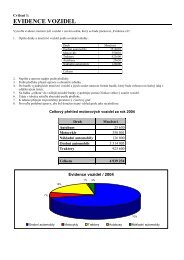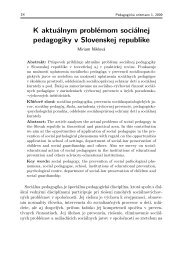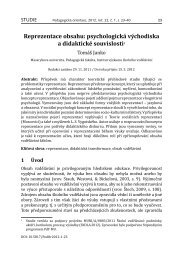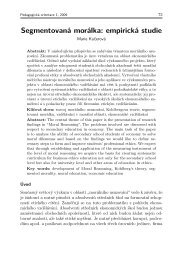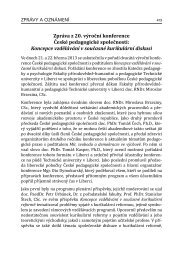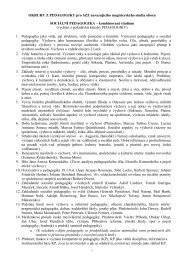Clarissa, Volume 6 - The History Of A Young Lady
Clarissa, Volume 6 - The History Of A Young Lady
Clarissa, Volume 6 - The History Of A Young Lady
You also want an ePaper? Increase the reach of your titles
YUMPU automatically turns print PDFs into web optimized ePapers that Google loves.
<strong>Clarissa</strong>, <strong>Volume</strong> 6 − <strong>The</strong> <strong>History</strong> <strong>Of</strong> A <strong>Young</strong> <strong>Lady</strong> 154<br />
blunder; being obliged to follow her lead, and vary from his first design; which was to have the people of the<br />
house spoken well of, in order to induce her to return to it, were it but on pretence to direct her clothes to be<br />
carried to Hampstead.<br />
<strong>The</strong> pretended lady went on, saying, she had taken upon herself to inquire after the people, on hearing that I<br />
had left the house in disgust; and though she heard not any thing much amiss, yet she heard enough to make<br />
her wonder that he could carry his spouse, a person of so much delicacy, to a house, that, if it had not a bad<br />
fame, had not a good one.<br />
You must think, my dear, that I liked the pretended <strong>Lady</strong> Betty the better for this. I suppose it was designed<br />
that I should.<br />
He was surprised, he said, that her <strong>Lady</strong>ship should hear a bad character of the people. It was what he had<br />
never before heard that they deserved. It was easy, indeed, to see, that they had not very great delicacy, though<br />
they were not indelicate. <strong>The</strong> nature of their livelihood, letting lodgings, and taking people to board, (and yet<br />
he had understood that they were nice in these particulars,) led them to aim at being free and obliging: and it<br />
was difficult, he said, for persons of cheerful dispositions, so to behave as to avoid censure: openness of heart<br />
and countenance in the sex (more was the pity) too often subjected good people, whose fortunes did not set<br />
them above the world, to uncharitable censure.<br />
He wished, however, that her <strong>Lady</strong>ship would tell what she had heard: although now it signified but little,<br />
because he would never ask me to set foot within their doors again: and he begged she would not mince the<br />
matter.<br />
Nay, no great matter, she said. But she had been informed, that there were more women−lodgers in the house<br />
than men: yet that their visiters were more men than women. And this had been hinted to her (perhaps by<br />
ill−wishers, she could not answer for that) in such a way, as if somewhat further were meant by it than was<br />
spoken.<br />
This, he said, was the true innuendo−way of characterizing, used by detractors. Every body and every thing<br />
had a black and a white side, of which well wishers and ill wishers may make their advantage. He had<br />
observed that the front house was well let, and he believed more to the one sex than to the other; for he had<br />
seen, occasionally passing to or fro, several genteel modest looking women; and who, it was very probable,<br />
were not so ill−beloved, but they might have visiters and relations of both sexes: but they were none of them<br />
any thing to us, or we to them: we were not once in any of their companies: but in the genteelest and most<br />
retired house of the two, which we had in a manner to ourselves, with the use of a parlour to the street, to<br />
serve us for a servants' hall, or to receive common visiters, or our traders only, whom we admitted not up<br />
stairs.<br />
He always loved to speak as he found. No man in the world had suffered more from calumny than he himself<br />
had done.<br />
Women, he owned, ought to be more scrupulous than men needed to be where they lodged. Nevertheless he<br />
wished that fact, rather than surmise, were to be the foundation of their judgments, especially when they spoke<br />
of one another.<br />
He meant no reflection upon her <strong>Lady</strong>ship's informants, or rather surmisants, (as he might call them,) be they<br />
who they would: nor did he think himself obliged to defend characters impeached, or not thought well of, by<br />
women of virtue and honour. Neither were these people of importance enough to have so much said about<br />
them.<br />
<strong>The</strong> pretended <strong>Lady</strong> Betty said, all who knew her, would clear her of censoriousness: that it gave her some




